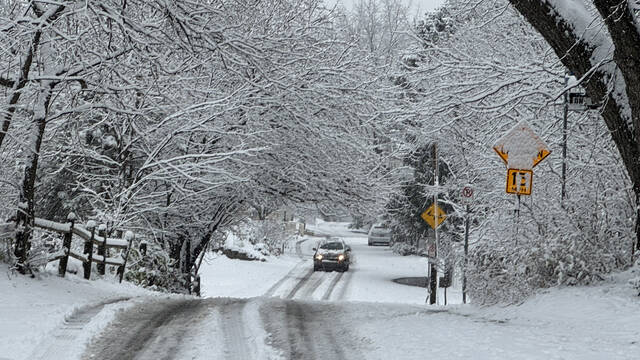Pittsburgh’s finances are projected to be tight in the coming years and that might force officials to take a “hard look” at raising taxes, said City Council Budget Director Peter McDevitt.
McDevitt led a budget discussion with council members Tuesday to formally launch council’s weekslong budget process ahead of a final vote.
Mayor Ed Gainey’s 2024 budget proposal meets requirements in the city’s Home Rule charter that the city must maintain a reserve fund balance that is equal to at least 10% of spending and a debt service of less than 12%, said Rea Price, deputy director of council’s budget office.
More than 80% of the city’s fund balance by the end of the year will be propped up by federal American Rescue Plan Act dollars, McDevitt said.
“Without the bailout, we might not have a fund balance at all,” he said.
Next year will mark the final year the city relies on federal American Rescue Plan Act funding to buoy its operating budget, McDevitt said. After that, the city will need to look for additional revenue elsewhere.
In 2028, the city is projected to drop to a 10% fund balance, “which is the minimum we’re allowed by code,” McDevitt said.
“Ten percent is not healthy,” he said, explaining that the best practice is to maintain a fund balance of at least 16.7%, which would be enough to cover city expenses for two months. “We need to find a way to bring in more revenue.”
McDevitt said the city could benefit if the county did a real estate reassessment. Councilman R. Daniel Lavelle, the finance chair, said that could bring in about $6 million in extra revenue for the city annually.
McDevitt also advocated for payments in lieu of taxes, or PILOTs, from tax-exempt nonprofits. He voiced support for an effort Gainey’s administration launched this year to challenge the tax-exempt status of entities that may not actually operate as nonprofits to bolster tax revenues.
“Over the next few years, we’re going to have to take a hard look at raising the taxes to bring more revenue in,” McDevitt told council members Tuesday.
There is no tax increase proposed for 2024. Council President Theresa Kail-Smith, D-West End, on Monday said she was not open to the possibility of raising taxes.
Maria Montaño, a spokesperson for the mayor’s office, declined to comment on the possibility of tax increases in future years. She said the mayor was proud the proposed 2024 budget does not include a tax hike.
“Inflation has hit us hard over the last couple of years, and things cost more than they used to,” McDevitt said. “Running the city is expensive. We need to make sure we have enough money to pay for that.”
About 76% of the $714 million in projected revenues the city expects to bring in next year come from taxes, Price said.
Beginning Wednesday, council will host budget hearings with each city department, as well as other entities that receive city funding, including the Urban Redevelopment Authority and Pittsburgh Land Bank.
Related:
• Gainey's proposed Pittsburgh 2024 budgets include no tax increases• Gainey says his budget proposal would improve Pittsburgh's core services, make city safer
The city’s proposed operating budget would include money for 15 new workers in the Department of Public Works’ Bureau of Environmental services; 11 more firefighters; a dozen civilian community aides to assist police; 10 new workers in the Department of Permits, Licenses and Inspections; seven more positions in City Planning; and two extra employees for the Department of Mobility and Infrastructure.
It also budgets for 50 fewer police officers than the 900 the city budgeted for this year. That’s still more officers than the bureau actually has now. Officials have said they hope to reach 850 officers by the end of next year.
The budget includes a 3% pay raise for most city employees, Price said. That does not include firefighters, paramedics and other workers who are represented by unions that are currently negotiating new contracts.
The budget also includes an extra $2.6 million for public safety vehicles and administration, $4 million for Public Works facilities and an additional $900,000 for bridge maintenance, Price said.
The parks tax trust fund is set to cover costs for 14 additional positions, including nine in Public Works and five in Parks and Recreation, McDevitt said. The proposed budget also includes $1.1 million for playground upgrades and money to buy six dump trucks and a car.
The city’s capital budget will focus on the backlog of existing projects, McDevitt said. That includes about $17 million for paving projects, which is about $1.2 million less than this year.
It also budgets for $9.5 million for new vehicles, which is “really less than half” of what the city needs to upgrade its aging fleet, McDevitt said.
Under the proposed budget, the city would use about $38.3 million in federal pandemic relief funds for personnel-related expenses, $6.4 million for other operating expenses and $1.5 million for land maintenance.
The pandemic relief money must be allocated by the end of 2024 and spent by the end of 2026, or the city loses it.
“We’re not in a financial position to give money back,” McDevitt said.
Council must approve a final version of the budgets by the end of the year.








